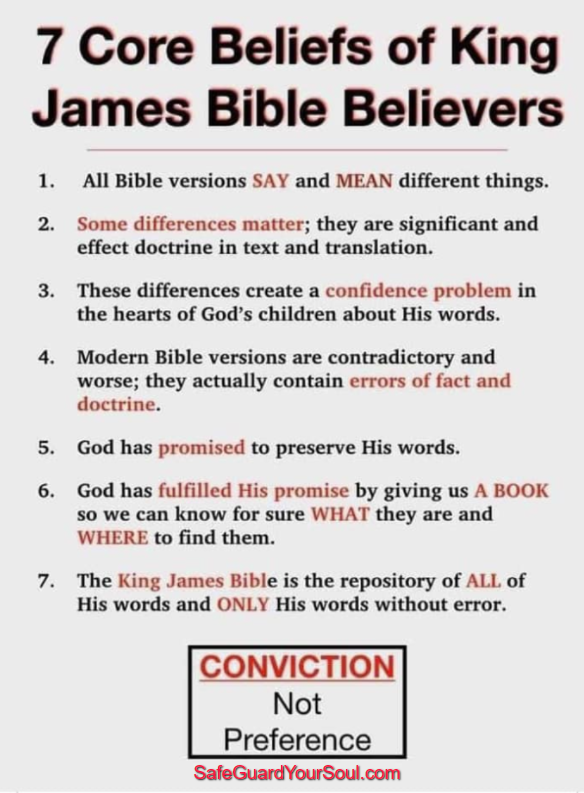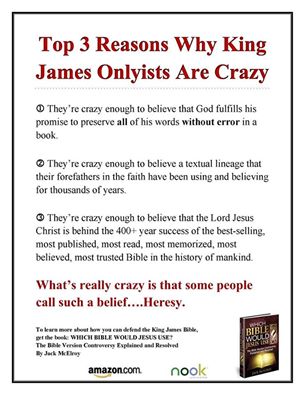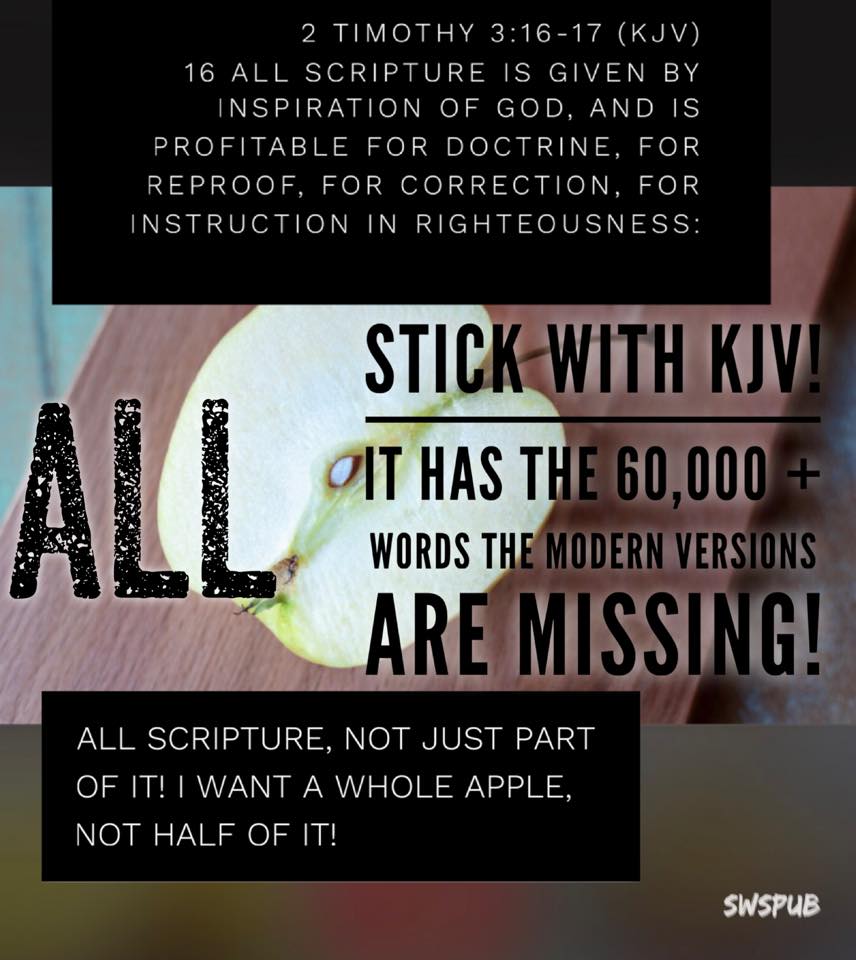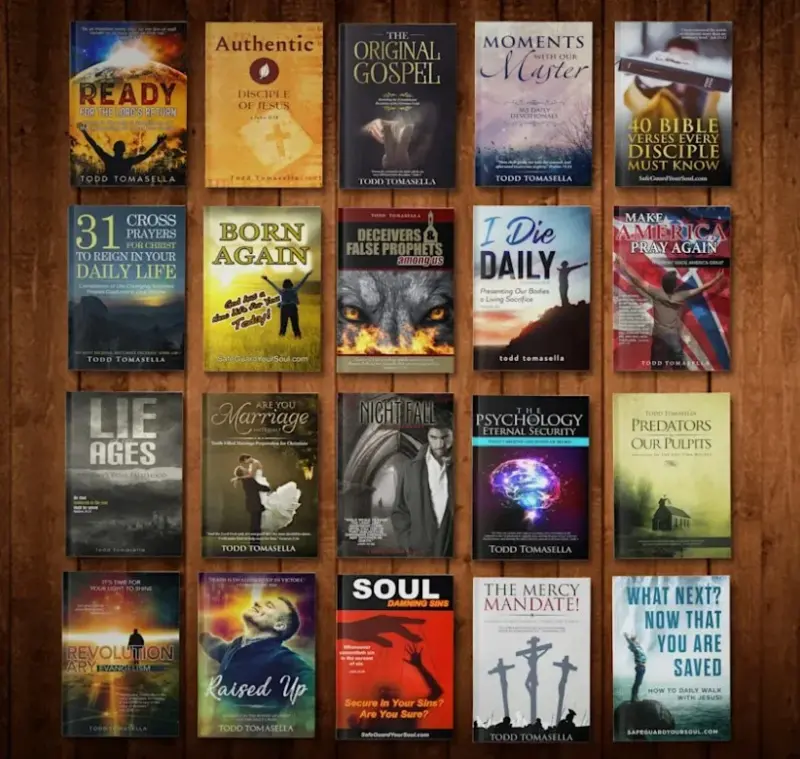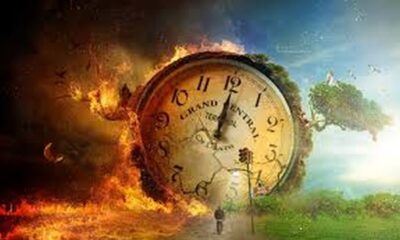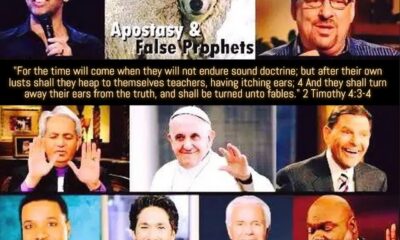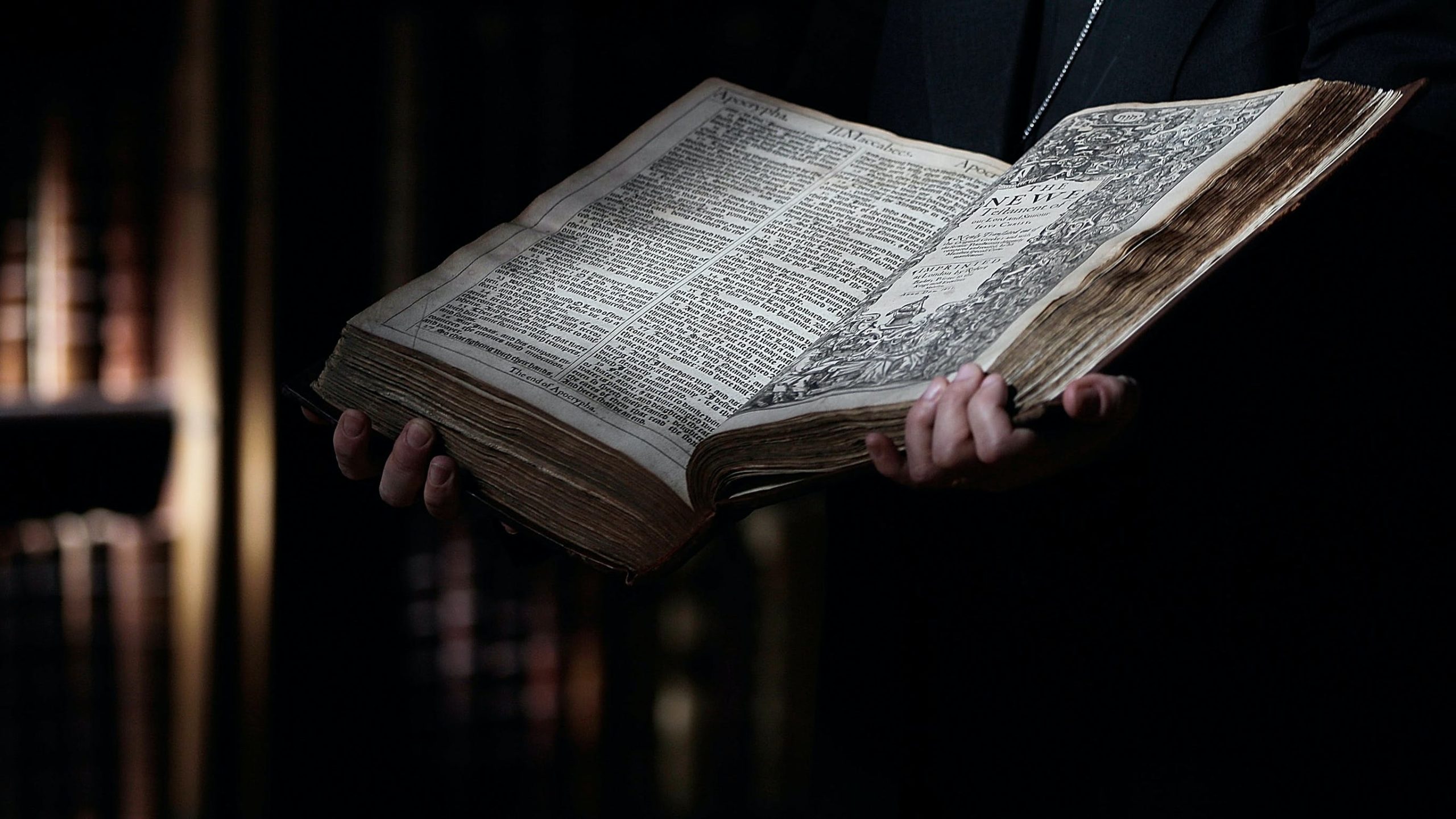
The Translators of the King James Bible Brief Summary
At the Hampton Court Conference, convened by King James I in 1603, John Reynolds, the head of the Puritan Church in England, proposed a new English translation of the Scriptures that would unite the churches and the people of England. Reynold’s goal was one universal authority or standard for all English-speaking Christians. There was division and strife between the churches and the people over the two primary English translations of the time the Bishops’ Bible and the Geneva translation. The Bishops’ Bible, published in 1568 by leaders in the Church of England by the authority of Queen Elizabeth, was the official Bible for usage in the churches. The Geneva Bible, produced in 1560 by exiled Protestant leaders in Geneva, Switzerland, had been adopted and embraced as the beloved Bible of the common people. Although both translations were made from the same textual foundation the Textus Receptus Greek and the Masoretic Text of the Hebrew in many places the English renderings differed, resulting in strife and confusion between pulpit and pew. King James received Reynold’s proposal gladly, and was anxious for work on a new English Bible translation to begin.
A list of the names of fifty-four men was forwarded to the king, who approved the proposed list of translators submitted by the Dean of Westminster and the Regius Professor of Hebrew at Oxford and Cambridge Universities.
The next three years were set aside by the select group of translators for time in private research, prayer, fasting and preparation for the task that lay ahead. The King James translation team was comprised of fifty-four godly men, and arguably the most scholarly men ever assembled for any similar endeavor.
The company met together in 1607 to commence work on the translation and divided themselves into six committees: two met at Oxford, two at Cambridge, and two at Westminster Abbey. The whole of the Bible was distributed in six portions among the various committees: John Reynolds and Miles Smith chaired the committee responsible for the Books of Isaiah through Malachi; Bishop George Abbott oversaw the committee working on the Gospels, Acts and the Book of Revelation; Edward Lively headed the committee which translated I Chronicles through the Song of Solomon;
John Bois’ company worked on the translation of the Apocryphal books; Genesis through II Kings were assigned to Lancelot Andrewes and his group; and the New Testament Epistles were translated by a committee led by Dr. William Bedwell.
The conditions for translation work for a project of the magnitude of the entire English Bible were ideal in the early seventeenth century in England. The translators operated with the blessing and the financial aid of the king himself. All of the scholarship and resources of Cambridge University, Oxford University and Westminster Abbey were at the translators’ disposal. An invitation was extended to “all principal learned men of the kingdom” to participate as consultants or advisors. Historians concur that during this era the English language had “ripened to its full perfection” (from Alexander McClure’s The Translators Revived). McClure also stated that “the study of Greek, and of the oriental languages, and of rabbinical lore, had been carried to a greater extent in England than ever before or since.” The character and credentials of the translators were impeccable. Lancelot Andrewes, while a young student at Cambridge, learned a new language each year during Easter break. After several years, he had mastered most of the languages of Europe. Andrewes spoke Latin, Greek, Hebrew, Chaldee, Syriac, Arabic and at least fifteen other languages. It was said of him that he could have been “interpreter general” at the Tower of Babel! He was also reputed to have spent an average of five hours each day in prayer. Among the Christians of his day he was known as “the star of preachers.” It was said that “those who stole his sermons could never steal his preaching.” Andrewes had the privilege of being selected, from among all the preachers in the land, to deliver the annual Christmas Day sermon for the royal family, beginning with Queen Elizabeth and continuing for many years during the reign of King James.
William Bedwell produced translations of the Scriptures into Hebrew, Syriac, Chaldee and Arabic. He produced a Persian dictionary and a three-volume Arabic lexicon. He was a master of the Semitic languages, which shed much light on Hebrew words and phrases, most importantly those Hebrew words and phrases that found their way into the Greek language of the New Testament.
John Bois read through the Hebrew Bible by age five, and by age six was writing Hebrew legibly. He was often found studying Greek at the Cambridge library from four a.m. until 8 p.m. (sixteen hours a day!). Bois tutored many of his fellow students at the University in Greek, and his class was also attended by many of his Greek professors! John Bois served as pastor of St. John’s Church before, during, and after his work as Bible translator. He preached without notes, but not without much prayer and study. He had the entire Greek New Testament committed to memory. He practiced fasting twice a week, and often gave to help the poor until he had no more to give himself. Among Bois’ writings was a commentary in Latin on the Gospels and Acts. Even after his retirement, he spent eight hours a day in study, mostly reading and correcting the ancient authors.
Dr. Miles Smith was known as “a walking library.” He was called by his contemporaries “an incomparable theologist.” He had studied all of the writings of the Latin and Greek church fathers, and was as well versed in Arabic, Chaldee and Syriac as he was in English. It was said of Smith that he “had Hebrew at his fingers’ ends.” He was chosen by the other translators to write the Preface to the King James Bible, The Translators to the Reader. Concerning his fellow translators, he wrote: “There were many chosen who were greater in other men’s eyes than their own, and who sought the truth rather than their own praise.” Miles Smith served as the final editor on the King James translation, perusing the entire text of the Bible before it went to press in 1611.
At age 23, John Reynolds was made a Greek lecturer at Corpus Christi College. He gave himself to the study of the Scriptures in the original languages, and was an “able and successful preacher of God’s Word.” He had read all the Greek and Latin fathers, and all the records of the ancient church. He was known as “a living library” and “a third university” (Oxford, Cambridge, and John Reynolds!). These are a few observations of Reynolds contemporaries: “As to virtue, integrity, piety, and sanctity of life, he was so eminent and conspicuous, that to name Reynolds is to commend virtue itself.” “He alone was a well-furnished library, full of all faculties, all studies, and all learning. The memory and reading of that man were near to a miracle.” “He was most excellent in all tongues useful or ornamental to a divine. He was so well skilled in all arts and sciences, as if he had spent his whole life in each of them.”
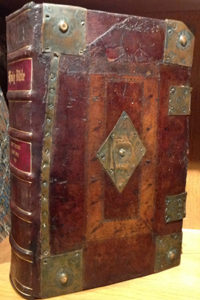 Of the fifty-four translators, four were college presidents, six were bishops, five were deans, thirty held PhD’s, thirty-nine held Masters degrees, there were forty-one university professors, thirteen were masters of the Hebrew language, and ten had mastered Greek. Every man involved in the King James Bible translation believed in the verbal inspiration of the Scriptures, all believed in the deity of our Lord Jesus Christ, and all were men of prayer. Many were not only Biblical scholars and master linguists, but also God-called, Spirit-filled preachers. Yet the translators considered themselves “poor instruments to make God s holy truth to be yet more and more known unto the people.”
Of the fifty-four translators, four were college presidents, six were bishops, five were deans, thirty held PhD’s, thirty-nine held Masters degrees, there were forty-one university professors, thirteen were masters of the Hebrew language, and ten had mastered Greek. Every man involved in the King James Bible translation believed in the verbal inspiration of the Scriptures, all believed in the deity of our Lord Jesus Christ, and all were men of prayer. Many were not only Biblical scholars and master linguists, but also God-called, Spirit-filled preachers. Yet the translators considered themselves “poor instruments to make God s holy truth to be yet more and more known unto the people.”
A look at some of the statements of the translators themselves reveals the depth of their convictions concerning the eternal Word of God. They spoke of the Scriptures as “that inestimable treasure which excelleth all the riches of the earth.” They acknowledged the Bible as being “so full and so perfect,” “a fountain of most pure water, springing up into everlasting life.” They believed “the original (Scriptures were) from heaven, not earth; the author being God, not men; the penmen, such as were sanctified from the womb and endued with a principal portion of God’s Spirit.” They referred to the Bible as “God’s Word,” “God s Truth,” “God’s testimony,” “the Word of salvation.” Study of the Scriptures brought “light of understanding, stableness of persuasion, repentance from dead works, newness of life, holiness, peace, joy in the Holy Ghost, fellowship with the saints, participation of the heavenly nature, fruition of an inheritance immortal, undefiled, and that shall never fade away.” From the translators Epistle Dedicatory, the dedication letter of their Bible translation to King James I:
“Among all our joys, there was not one that more filled our hearts, than the blessed continuance of the preaching of God s sacred Word among us.”
Some closing comments from The Translators to the Reader: Gentle Reader, we commend thee to God, and to the Spirit of His grace. He removeth the scales from our eyes, the veil from our hearts, opening our wits that we may understand His Word, enlarging our hearts, yea correcting our affections, that we may love it above gold and silver, yea that we may love it to the end. Ye are brought unto fountains of living water which ye digged not. Others have labored, and you may enter into their labors; O receive not so great things in vain, O despise not so great salvation! It is a fearful thing to fall into the hands of the living God; but a blessed thing it is, and will bring us to everlasting blsessedness in the end, when God speaketh unto us, to hearken; when He setteth His Word before us, to read it; when He stretcheth out His hand and calleth, to answer, Here am I, here we are to do thy will O God.”
In the final analysis, the translators of the King James Bible believed that what they had spent nearly seven years of their lives producing was an “exact translation of the holy Scriptures into the English tongue.”
By Bill Bradley, Professor of Bible and History,
Landmark Baptist College,
The Land Mark Anchor
Support | STORE | Podcasts | H.O.T. Bible Study [podcast] | Bible Agnostics Exposed | How to Spot a Fake Bible [podcast] | WHAT ABOUT PEOPLE WHO CAN’T UNDERSTAND THE KJB? [podcast] | New American Standard Version “Bible” NASV Catastrophe Exposed | The Audacity of Defending the New Versions | Do We Have God’s Word or Do You Need to Know the Original Languages? [podcast] | Bible Versions Category |
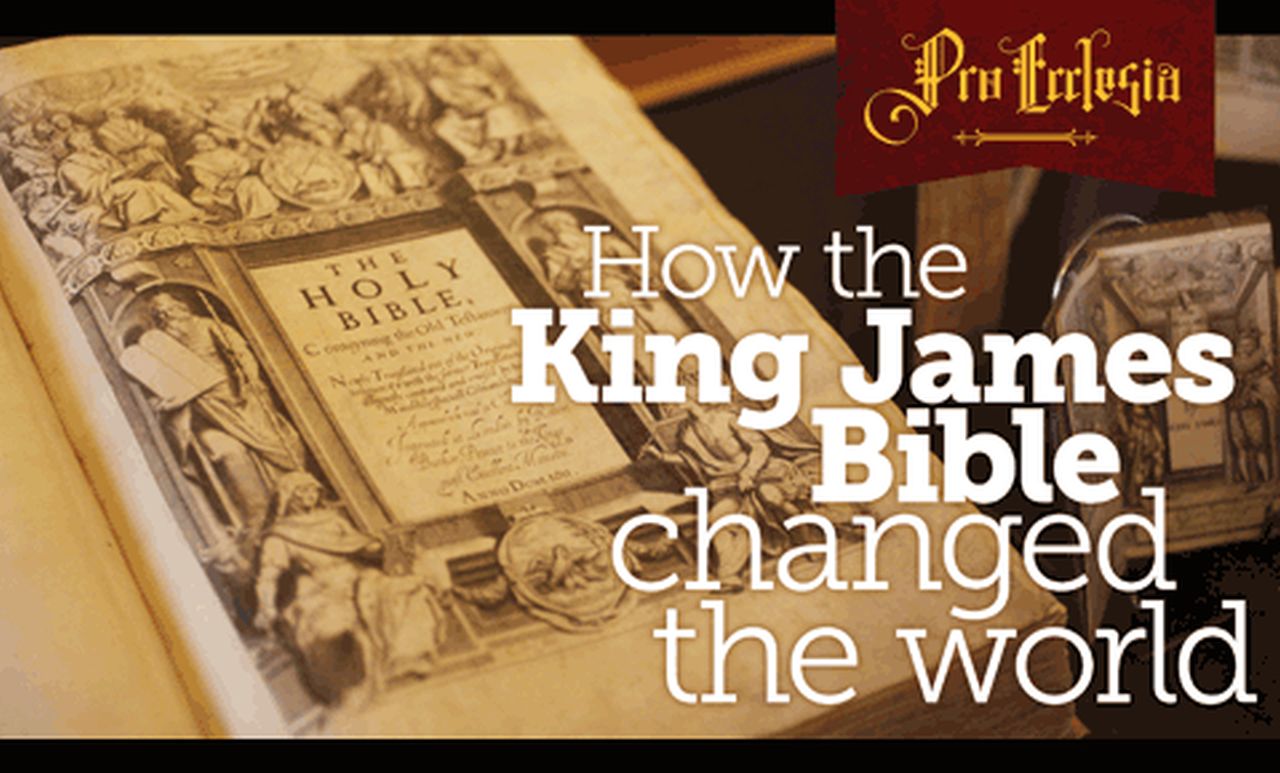

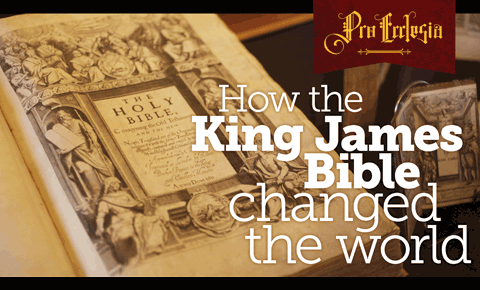
Articles
“Let Brotherly Love Continue” [podcast]

“Let Brotherly Love Continue.” Hebrews 13:1
“And walk in love, as Christ also hath loved us, and hath given himself for us an offering and a sacrifice to God for a sweetsmelling savour.” Ephesians 5:2
1 John 4
God Is Love
“7 Beloved, let us love one another: for love is of God; and every one that loveth is born of God, and knoweth God.
8 He that loveth not knoweth not God; for God is love.
9 In this was manifested the love of God toward us, because that God sent his only begotten Son into the world, that we might live through him.
10 Herein is love, not that we loved God, but that he loved us, and sent his Son to be the propitiation for our sins.
11 Beloved, if God so loved us, we ought also to love one another.
12 No man hath seen God at any time. If we love one another, God dwelleth in us, and his love is perfected in us.
13 Hereby know we that we dwell in him, and he in us, because he hath given us of his Spirit.
14 And we have seen and do testify that the Father sent the Son to be the Saviour of the world.
15 Whosoever shall confess that Jesus is the Son of God, God dwelleth in him, and he in God.
16 And we have known and believed the love that God hath to us. God is love; and he that dwelleth in love dwelleth in God, and God in him.
17 Herein is our love made perfect, that we may have boldness in the day of judgment: because as he is, so are we in this world.
18 There is no fear in love; but perfect love casteth out fear: because fear hath torment. He that feareth is not made perfect in love.
19 We love him, because he first loved us.
20 If a man say, I love God, and hateth his brother, he is a liar: for he that loveth not his brother whom he hath seen, how can he love God whom he hath not seen?
21 And this commandment have we from him, That he who loveth God love his brother also.”
1 Corinthians 13
“Though I speak with the tongues of men and of angels, and have not charity, I am become as sounding brass, or a tinkling cymbal. 2 And though I have the gift of prophecy, and understand all mysteries, and all knowledge; and though I have all faith, so that I could remove mountains, and have not charity, I am nothing. 3 And though I bestow all my goods to feed the poor, and though I give my body to be burned, and have not charity, it profiteth me nothing. 4 Charity suffereth long, and is kind; charity envieth not; charity vaunteth not itself, is not puffed up, 5 Doth not behave itself unseemly, seeketh not her own, is not easily provoked, thinketh no evil; 6 Rejoiceth not in iniquity, but rejoiceth in the truth; 7 Beareth all things, believeth all things, hopeth all things, endureth all things. 8 Charity never faileth: but whether there be prophecies, they shall fail; whether there be tongues, they shall cease; whether there be knowledge, it shall vanish away.”
Support | STORE | Podcasts | Jail/Prison Ministry | Mexico Mission here | All Ministry Updates | Because You Care Page | The Greatest of these is Charity | Be Ready in the Morning [podcast] | The Sure Mercies of David [podcast] | That Repentance and Remission of Sins should be Preached [podcast] | At His Feet | Prepared to be Used of God | Walking with Jesus on His Stated Terms – the Cross | Fasting and Prayer | The Old Man Must be Put Down [podcast] | The 5 Sins That Keep God’s People Out of Their Promised Land [podcast] | What Did Paul Mean by “I Keep Under My Body”? [podcast] | “Jesus the Author and Finisher of our Faith” [podcast] | A Living Sacrifice unto God [podcast] | Departing from Hell Beneath | Prayer

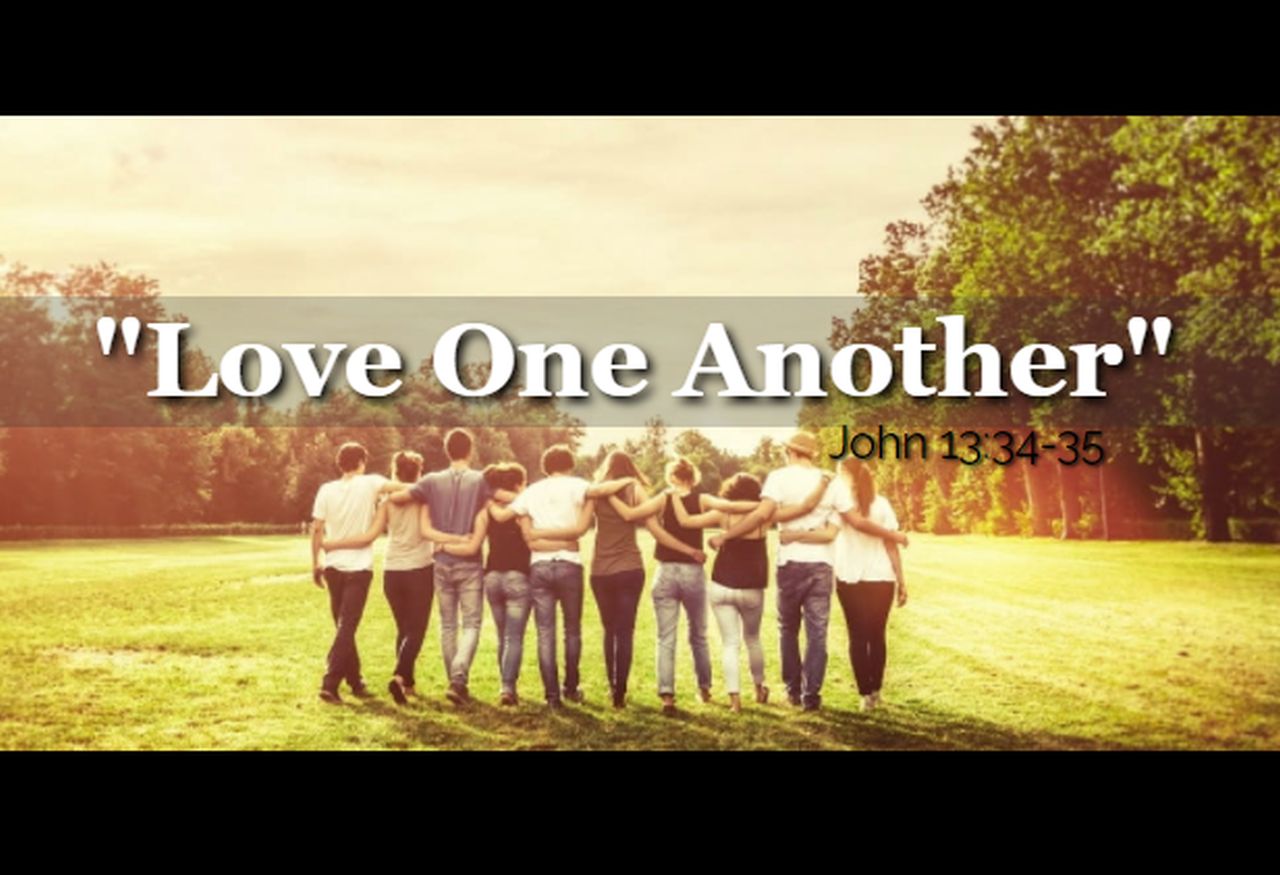
Articles
5 Aspects of the Mind of Christ [podcast]
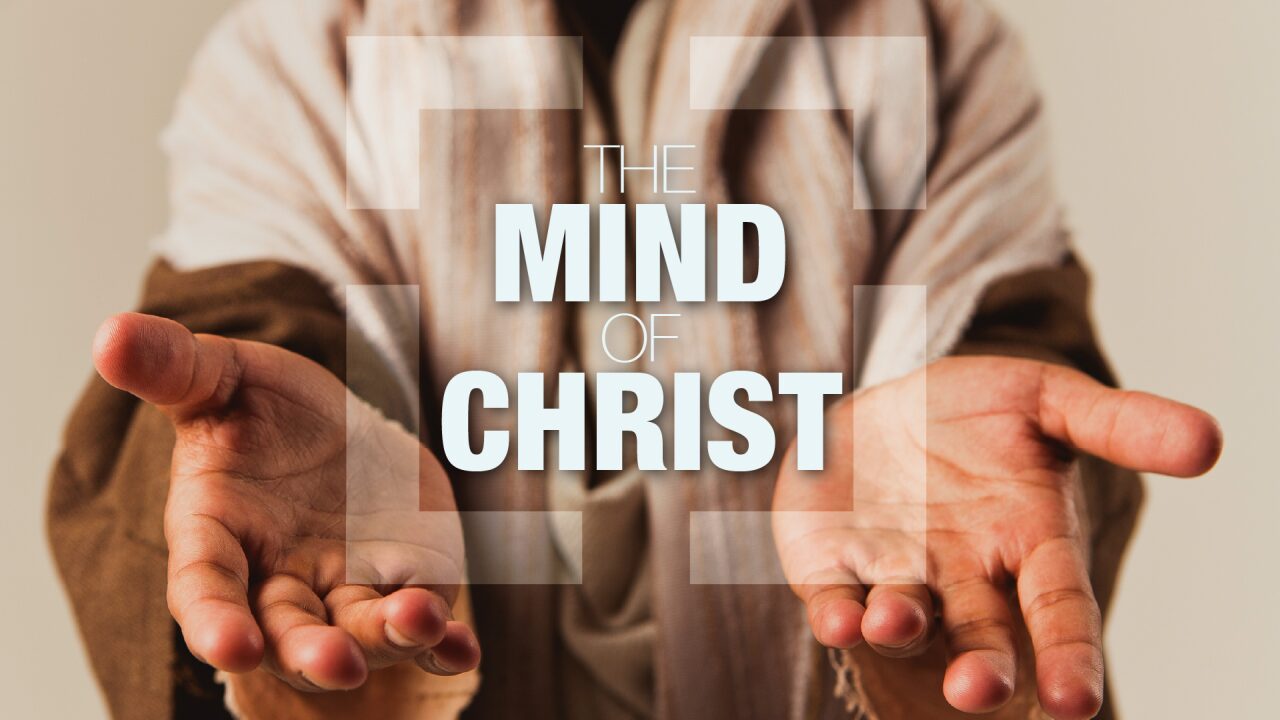
5 Components of the Mind of Christ from Philippians 2
- Jesus Christ made Himself of no reputation.
- He took upon Him the form of a servant.
- He was made in the likeness of men.
- He humbled Himself.
- He became obedient unto death, even the death of the cross.
Philippians 2:2-10
“Fulfil ye my joy, that ye be likeminded, having the same love, being of one accord, of one mind.
3 Let nothing be done through strife or vainglory; but in lowliness of mind let each esteem other better than themselves.
4 Look not every man on his own things, but every man also on the things of others.
5 Let this mind be in you, which was also in Christ Jesus:
6 Who, being in the form of God, thought it not robbery to be equal with God:
7 But made himself of no reputation, and took upon him the form of a servant, and was made in the likeness of men:
8 And being found in fashion as a man, he humbled himself, and became obedient unto death, even the death of the cross.
9 Wherefore God also hath highly exalted him, and given him a name which is above every name:
10 That at the name of Jesus every knee should bow, of things in heaven, and things in earth, and things under the earth;
11 And that every tongue should confess that Jesus Christ is Lord, to the glory of God the Father.”
At Gethsemane the death before the cross, before His death on the cross occurred.
“Father, if thou be willing, remove this cup from me: nevertheless not my will, but thine, be done.” Luke 22:42
“He became obedient unto death, even the death of the cross.” Philippians 2:8
Living in the mind, the disposition of Christ means you are truly following Him.
As Christ’s disciple, your devotion, your love is first to Him, then to your neighbor, not self (Matthew 22:37-39). You are commanded by the Savior to set self aside and to lift others above yourself—to prefer, to put God and others first. Those who do so, experience true freedom, liberty.
Being one with Christ, who gave all to save you, means your life is over—you now live to serve the LORD and others, not self (Galatians 2:20; Colossians 3:3).
Have you poured prayerfully over Philippians 2:3-5 today? If you will begin every day this week pouring prayerfully over this passage, asking the LORD to internalize it in your heart, God will begin to deeply instill the very “mind of Christ” into your innermost disposition.
Part of the dying…. IS GOD calling us to Himself, to forsake this world, including the attempt to save an unrepentant nation long in rebellion against Him – America?
Prayer: LORD, I want to walk in the disposition You walked in on earth. I will esteem You and others above myself. In Jesus’ name, amen.
Let’s Grow Together! Sign up here to begin receiving the Moments with Our Master email devotional that is sure to help you grow in His grace and in the knowledge of our LORD and Savior Jesus Christ (2 Pet. 1:2; 3:18). It’s sent out for the edification of the body of Christ. Sign Up HERE.
Support | STORE | Podcasts | Jail/Prison Ministry | Mexico Mission here | All Ministry Updates | More on Assurance here | Because You Care Page | The Greatest of these is Charity | Be Ready in the Morning [podcast] | The Sure Mercies of David [podcast] | That Repentance and Remission of Sins should be Preached [podcast] | At His Feet | Knowing God | The Cross Life | 100’s of Christ-centered Scripture-rich Podcasts | Christology = the Study of Christ
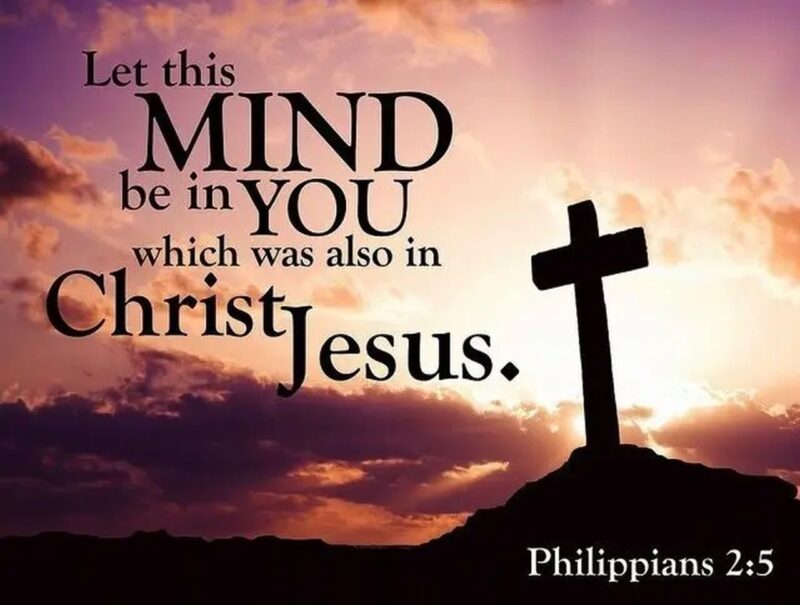

Articles
Greedy, Covetous, and Beguiled! [podcast]
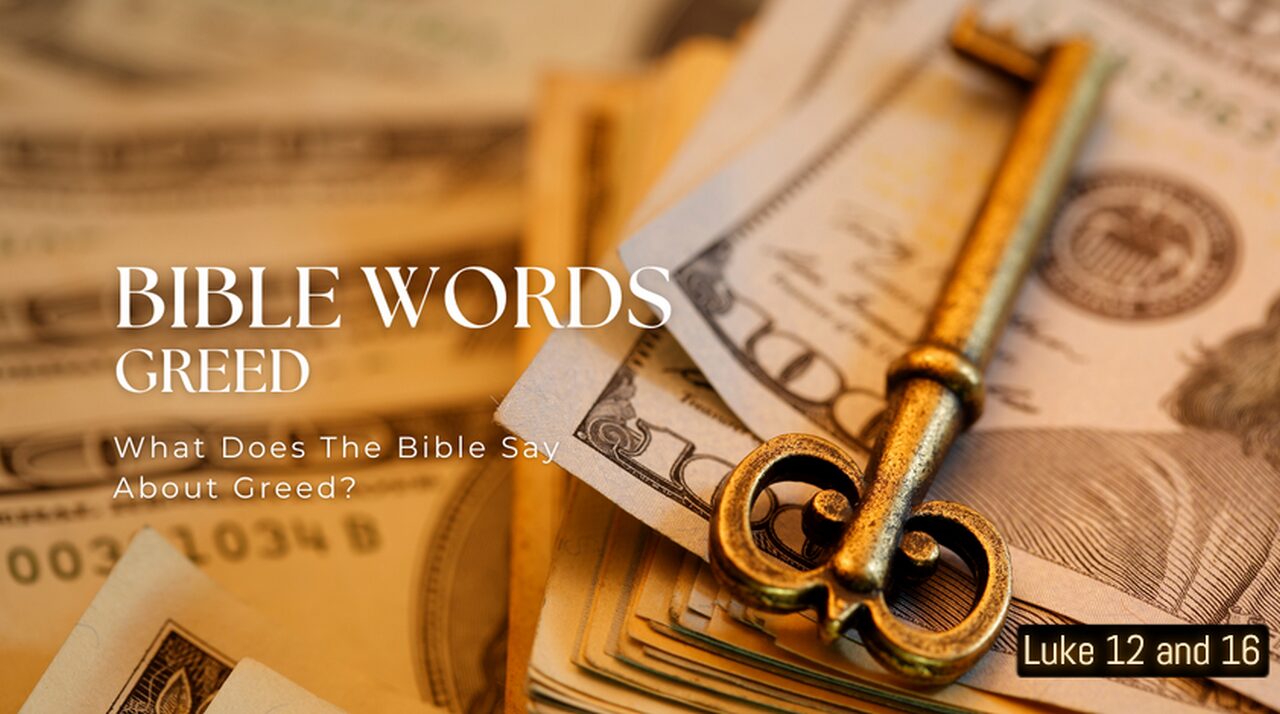
One man has wisely stated that “Greed and covetousness will damn more souls than all other sins combined.”
“Spiritual Blessings”
“Blessed be the God and Father of our Lord Jesus Christ, who hath blessed us with all spiritual blessings in heavenly places in Christ: 4 According as he hath chosen us in him before the foundation of the world, that we should be holy and without blame before him in love: 5 Having predestinated us unto the adoption of children by Jesus Christ to himself, according to the good pleasure of his will, 6 To the praise of the glory of his grace, wherein he hath made us accepted in the beloved. 7 In whom we have redemption through his blood, the forgiveness of sins, according to the riches of his grace;” Ephesians 1:3-7
“If we are in Jesus we have the the unsearchable riches of Christ (Ephesians 3:8). Unfathomable (in our small minds), infinite wealth and spiritual blessings! Endless mercy, grace, and forgiveness. That is inexhaustible! Why do we need any worldly riches that will rot and corrupt our hearts!? Lay up in your hearts God’s riches! Which are eternal!” Karen Cochran
“For whosoever will save his life shall lose it; but whosoever shall lose his life for my sake and the gospel’s, the same shall save it.” Mark 8:36
The only wealth that will last, forever, is that which is gained by obeying God in this life – thereby laying up treasure in Heaven (Matthew 6:19-21).
Got an “education” but going to hell eternally. Self-serving idolaters.
“For the love of money is the root of all evil: which while some coveted after, they have erred from the faith, and pierced themselves through with many sorrows.” 1 Timothy 6:10
America is full of those who claim to be saved and yet paid big money to get a piece of paper to get more money in this life and yet it’s clear that they’ve been serving money, mammon all along, not Christ.
“Lay not up for yourselves treasures upon earth, where moth and rust doth corrupt, and where thieves break through and steal: 20 But lay up for yourselves treasures in heaven, where neither moth nor rust doth corrupt, and where thieves do not break through nor steal: 21 For where your treasure is, there will your heart be also. 22 The light of the body is the eye: if therefore thine eye be single (full of Christ, not covetousness), thy whole body shall be full of light. 23 But if thine eye be evil (greed filled), thy whole body shall be full of darkness. If therefore the light that is in thee be darkness, how great is that darkness! 24 No man can serve two masters: for either he will hate the one, and love the other; or else he will hold to the one, and despise the other. Ye cannot serve God and mammon.” Matthew 6:19-24
They’ve never repented and aren’t presently, literally serving God. This means they are hell bound.
“For this ye know, that no whoremonger, nor unclean person, nor covetous man, who is an idolater, hath any inheritance in the kingdom of Christ and of God. 6 Let no man deceive you with vain words: for because of these things cometh the wrath of God upon the children of disobedience. 7 Be not ye therefore partakers with them.” Ephesians 5:5-7
Real repentance or reprobate?
“Examine yourselves, whether ye be in the faith; prove your own selves. Know ye not your own selves, how that Jesus Christ is in you, except ye be reprobates? 2 Corinthians 13:5
The souls of millions who think they are saved are going to be damned due to not being truly given over to the LORD they claim to know and be saved by. If their lives were truly given over, they would be helping others and the work of Christ to be advanced in this fleeting world.
Their covetousness – “I want this” or “I just bought that” – is telling on their wicked hearts (Luke 12; 1 Timothy 6). They are sinning away their day of grace as they live unto self and are rich toward self and not Jesus. They are “not rich toward God” to use Christ’s own words (Luke 12:21). Jesus promised these would be damned for their turning a dead ear and blind eye to the needs of others – “Inasmuch as ye did it not to one of the least of these, ye did it not to me.” (Matthew 25:45) The light bills and rent/mortgages of some in-need Christians go unpaid. The pantries of some remain empty. True, New Testament ministries go unfunded …. and Why? – Because of the waste of millions who call themselves by the name of the One who came and gave ALL. They do not resemble Him which clearly shows that they are not following Him and merely rendering lip service to Him in order to deceive their own darkened hearts into the vain imagination that they are going to be with Him eternally.
Their GOAL is your GOLD, not your SOUL! Get a clue! Read 2 Peter 2:1-3; Philippians 3:18-19.
“Hereby perceive we the love of God, because he laid down his life for us: and we ought to lay down our lives for the brethren. 17 But whoso hath this world’s good, and seeth his brother have need, and shutteth up his bowels of compassion from him, how dwelleth the love of God in him? 18 My little children, let us not love in word, neither in tongue; but in deed and in truth. 19 And hereby we know that we are of the truth, and shall assure our hearts before him.” 1 John 3:16-19
What you refuse to do (omission) when you see another in need, is indicative of who you are serving – self instead of the Savior. The Son of God says: “Every tree that bringeth not forth good fruit is hewn down, and cast into the fire. 20 Wherefore by their fruits ye shall know them. 21 Not every one that saith unto me, Lord, Lord, shall enter into the kingdom of heaven; but he that doeth the will of my Father which is in heaven.” (Matthew 7:19-21)
“They profess that they know God; but in works they deny him, being abominable, and disobedient, and unto every good work reprobate.” Titus 1:16
The fruit of the Spirit and good works are the clear indication that one is truly saved (Galatians 5:19-24; Titus 3:8; James 1:22-27). If you are not literally a giver, the LORD is calling you to repent and obey God’s Word by giving up first your whole life and will to Him. Then, all you have in your possession will go to His glory in loving your neighbor. If all you have isn’t Christ’s, it’s time to repent and get saved friend (Luke 14:33).
Prayerfully read Luke 12 and 1 Timothy 6 every day for the next week.
Toni S. writes:
“Not just helping in ministry, but also the widows, poor, prisoners and fatherless. In addition, so many just hand their tithes over to a church pastor expecting Him to do this with their money. But what they end up supporting is not a ministry but a lavish lifestyle that many pastors live. People also donate money to ‘charitable” organizations without even researching where that money really goes too.” Toni S.
Wolves patty cake with you because they want your money and could care less about your eternal soul (Isaiah 30:9-10; 2 Timothy:2-4; 2 Peter 2:1-3).
“But there were false prophets also among the people, even as there shall be false teachers among you, who privily shall bring in damnable heresies, even denying the Lord that bought them, and bring upon themselves swift destruction. 2 And many shall follow their pernicious ways; by reason of whom the way of truth shall be evil spoken of. 3 And through covetousness shall they with feigned words make merchandise of you: whose judgment now of a long time lingereth not, and their damnation slumbereth not.” 2 Peter 2:1-3
“And who are we to support? 3 John 8 “We therefore ought to receive such, that we might be fellowhelpers to the truth.” Those who are devoted to the truth of God’s word! And are speaking the original gospel once delivered unto the saints Jude 3. Then we become fellowhelpers to them who are spreading truth. And actually participate in their ministry by giving to them. As opposed to bidding God speed to the deceivers and false teachers (2 John 9-11). We aren’t to support financially or participate at all in their ministry. Or we become partakers in their evil deeds and will suffer the same punishment as them. So we have a choice, participate in those preaching the whole truth and receive rewards (treasures in heaven) or participate in the deception of false teachers and suffer eternal consequences!” Karen Cochran
PRAYER: I here and now confess to You Father that I have been a self-idolater, I have committed spiritual adultery against You. I have not had You but rather myself first. Please forgive my sin, wash me clean, and fill me with Your Holy Ghost afresh. Circumcise this heart and replace the stony places with a heart of flesh. Bless this vessel to abide crucified with Thee and bear fruit, more fruit, and much fruit. In Jesus’ name. Amen.
Let’s learn God’s Word and grow in grace together. Sign up here to receive the Moments with My Master email sent out to edify Christ’s body.
Support | STORE | Podcasts | The Return of Christ | Stewardship | Where to Give and Where Not to Give | Fruit Abounding to Your Account! | Consider Your Ways [podcast] | Consider and Build [podcast] | Holes in Your Money Bags? [podcast] | Dollar Dialogue | Jesus Sat Over Against The Treasury [podcast] | Escaping Sodom! | Waste | Stewardship | Giving




 America12 months ago
America12 months agoThe Drugging of America: The Pharmakeia Sorcery Deception [podcast]

 Articles2 years ago
Articles2 years agoChildren being Rescued in Tunnels: Happening Now – UPDATE!

 Articles8 years ago
Articles8 years agoSelf-Examination in Preparation for the Lord’s Return

 Apostasy2 years ago
Apostasy2 years agoSHOCKING List of False Prophets Most Believe are True










